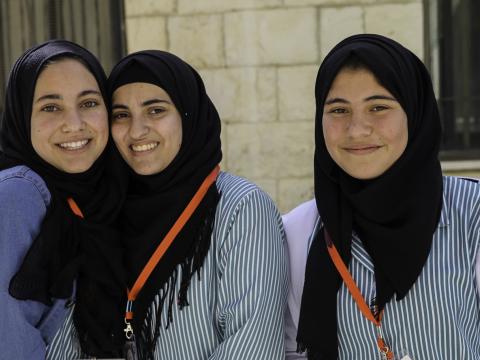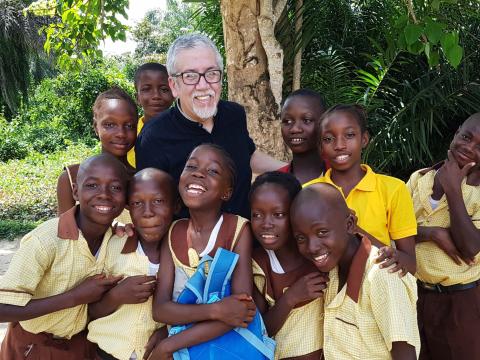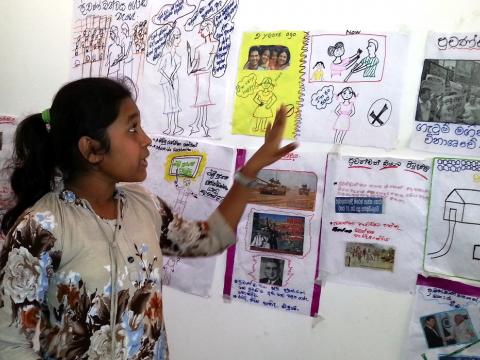
COVID-19: Girls are sad, scared and lonely
By Juliana Breidy
"I am stressed all the time, I cut ties with friends, I feel closed to others and alone,” —13-year-old girl in Albania
Call it what you will — grit, determination, a can-do attitude — but it all comes down to the same thing; being able to keep going in the face of challenge. It's a vital characteristic to help children flourish in the best and worst of times, but it's one that needs to be taught and nurtured in children by care-givers and other adults.
Sadly, World Vision's Act Now child consultation report has revealed that girls in the Middle East and Eastern Europe region appear less resilient than boys when facing the multiple stressors caused by the pandemic. As a result, the girls are less optimistic, less hopeful about the future and they demonstrated greater signs of stress, sadness and loneliness.
“Will I be happy again?” — a girl in Afghanistan.
“Life as we knew it before disappeared overnight.” — A 13-year-old girl in Bosnia and Herzegovina.
These results are more evidence of the inherent inequality in how society and families raise children in countries around the world. What children are taught about their inherent value and their role in society has an impact on how they respond when faced with a crisis like the COVID-19 pandemic.
For example, the lockdowns have meant that much learning went online. For those with access to online learning, school became a solitary activity. For those without access, socialising at school and learning just stopped. Social and physical distancing led to greater isolation from friends and loved ones.
How do girls and boys cope in such situations? Research shows that girls tend to pray when life gets tough. Boys approach a family member for support. This might suggest an emotional distance between girls and their parents or caregivers, which could be down to the gendered upbringing and parental expectations of them.
Worse, some girls will be living with someone who is abusing them, and seeking help or support in a time of crisis puts them in even more danger. Certainly the statistics of regarding abuse against children has risen during the time of the pandemic.
Research shows that girls who are less resilient often have low self-esteem, are emotionally more vulnerable and can be easily influenced by others. As a result, they often accept mistreatment and find it difficult to cope with problems or to see that solutions might be within their grasp. What they need is to believe that they are loved, that they belong and they are perfect just the way they are.
Poverty often has a face of a marginalised girl or woman and our research confirmed that COVID-19 exacerbates gender inequalities. So, we're focusing on helping young girls develop the skills to cope with the devastating effects COVID-19 on their lives.
As next steps, we are calling on governments, donors and other non-governmental organisations to run programmes focusing on self-esteem, stress management, critical thinking and tenacity that will give girls the resilience to deal with the crises like the COVID-19 pandemic as well as any other disruptions they might have to face in the future.
For this to make girls more resilient and less vulnerable, it will be critical that programming also targets parents, especially fathers, to help them realise the equal value, potential and prospects for girls and boys in their family.
Read World Vision's Act Now report for the Middle East and Eastern Europe region here. And the global report here.
Juliana Breidy is World Vision's Programme Effectiveness Advisor in the Middle East/Eastern Europe Regional Office. Follow her on Twitter @JulianaBreidy

